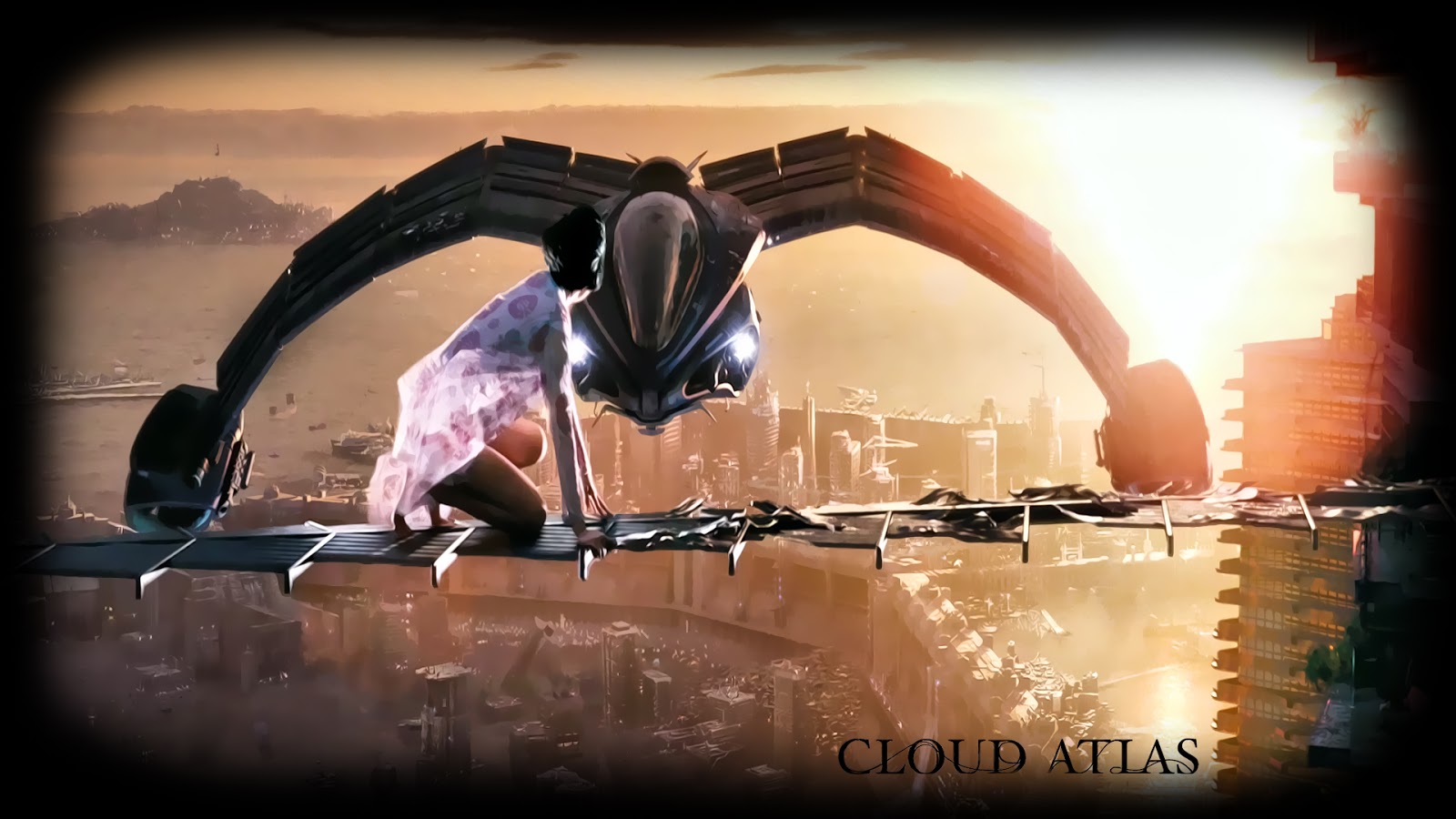What
do ‘Pirates of the Caribbean’, ‘Cast Away’, ’12 Monkeys’, and ‘The Matrix’
have in common? ‘Cloud Atlas’, that’s what. It’s a German Drama/Science Fiction
film of sorts that got released recently. Well, 2012 recently.
With a stellar cast ensemble such as this one, I was hoping to see something truly brilliant. My flame of hope however got extinguished very abruptly once I noticed that the plot clearly
got lost somewhere between, uhm, the clouds.
The
lead cast of this movie are: Tom Hanks, Halle Berry, Hugo Weaving, Hugh Grant,
and Susan Sarandon, to name the more known actors. Then there are also, Jim
Broadbent, Jim Sturgess, Doona Bae, Ben Whishaw, James D’Arcy, Keith David,
Zhou Xun and David Gyasi.
There
are moments of interpretative brightness coming from the actors when tapping into the psyches of
their characters, but mostly it feels like an exercise in futility, and none of
it really seems to - connect, not only them with each other, but with you the
viewer too.
Hugo
Weaving appears to at times quite literally do a reinterpretation of a slightly more devilish Agent Smith, whereas Hanks appears to still be lost on an island,
only this time, he's on quite a few. It’s
all a bit out there, but, ‘Heil Zeitgeist’, I guess.
It definitely seems to be far easier winning an Oscar with no clothes on rather than doing so wearing any,
if you had to analyse Berry’s labored efforts. Less shouldn’t be more, not in the dropping-your-knickers-in-front-of-the-camera sense anyway. Apparently if you want to ride the gravy train of acting success, flashing your
privates is all that will do. No wonder authentic performances in general are
falling by the way side.
The big idea:
It
all just seems like a bit of a repeat of the same old message: 'The
powerful that exploits the weak for their own personal economical gain, the
more connected you are, the more powerful. The more powerful, why, the skies the limit. The concept of ‘everything is
connected’, also seems to get lost in the many sub-plots, including the watered down one of:
‘What was, will be, what is, already was’, and round-and-round we go.
Unfortunately,
the world on this atlas seems to be spinning out of control in a manner that is
just excessively farfetched, not allowing any real plot to thicken at all, least of all to communicate anything
sound. It's a very extravagant, yet watered down attempt to portray re-incarnation, or saying that what we do now can have ripple effects in the future.
It just proofs once
again that just because you are being different, doesn’t mean you are
special, the one message ‘Cloud Atlas’ does succeed in communicating.
Fortunately, the make-up for this movie was not half bad, but again, also
reminiscent of Star Trek, and therefore - again, uninspiring.
What you can align yourself with in a more positive way, is the concept of love
that metaphorically gets portrayed in the form of music, and that music is an unique universal
language that we all seem to speak. This idea gets woven quite well into the
film, and throughout it. Almost like a thread in a tapestry. I found it refreshing.
If
love is indeed the music that connects us all and everything else, then I believe it’s the only
connection worth having.




